In Douris, in the region of Baalbek, Souhayla Abdel Rahim Aamer, aged 59, spent three months training to make and sell handicrafts. This training is part of the DAWRIC project (Direct Action for Women: Reform, Inclusion and Confidence) funded by the European Union to the tune of almost one million Euros. Its aim is to strengthen the capabilities of women in Lebanon in order to combat poverty and promote gender equality. Here is Souhayla’s story on how this training has impacted her life.
This article has been sponsored and translated from French to English by the EU Neighbours South
“Ever since I was little, I never liked the idea of marriage. I always had admirers, they were always around, but until now I never wanted to engage with them. Every time a man approached me, I got anxious. I thought, why would I start my own family? I already had a family. My mother fell ill when I was very young. From the age of 13/14 I had to care for her and my 7 younger brothers and sisters. They didn’t know how to do anything around the house like the washing, cooking and cleaning. But I had watched my mother do it for a long time and was a quick learner. I copied what she did and sometimes I performed the chores even better than she did!
I was quite gifted, it is a shame I wasn’t able to study. It has always been my dream to study. I love it!
I had to leave school a few days before finishing. I was all set to pass but they cancelled the exam 13 days before because of the war. I really liked physics, chemistry and science. I was really good at those subjects. I would have liked to study medicine or engineering.
When I was about 20 years old, a friend from the Palestine camp told me about an opportunity to work in a traditional Palestinian embroidery factory in Douris, near Baalbek, where we lived. She said “instead of sitting back and doing nothing at home, after finishing the housework why don’t you and your sisters learn something new to pass the time? You can even work from home.”
Naturally, to begin with, my parents were against the idea. At that time, it was not the done thing to allow girls to work. But my sisters and I managed to convince them.
We explained to them that it didn’t make sense to not do anything when we could be working from home, enjoying ourselves and contributing financially to the household.
And that is how my sisters and I came to work in the factory.
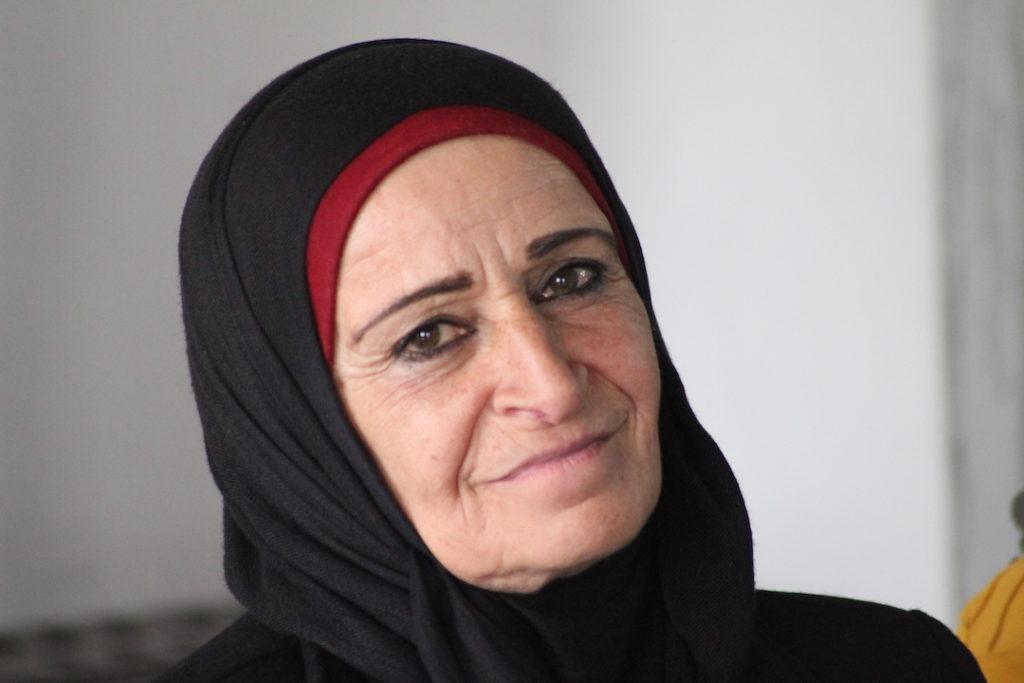
It changed me. I felt like I was finally doing something for myself, that there was a place for me in society and that I could do something useful. When I wanted to buy a dress or even fruit for the house and my father couldn’t afford it, I was able to treat myself and support the family. When my brothers and sisters got married, I was able to support them financially. When my brother died, I could help my father take care of my nephew and niece who came to live with us.
The embroidery factory closed about ten years later. I continued working for a few years thanks to a Lebanese NGO selling Palestinian handicrafts (Inaash). Unfortunately, when they stopped their activities in Douris, I found myself at home again for some 15 years. It really affected me that I no longer had my own source of income to buy what I wanted. I was no longer used to asking my father for help, nor did I want to.
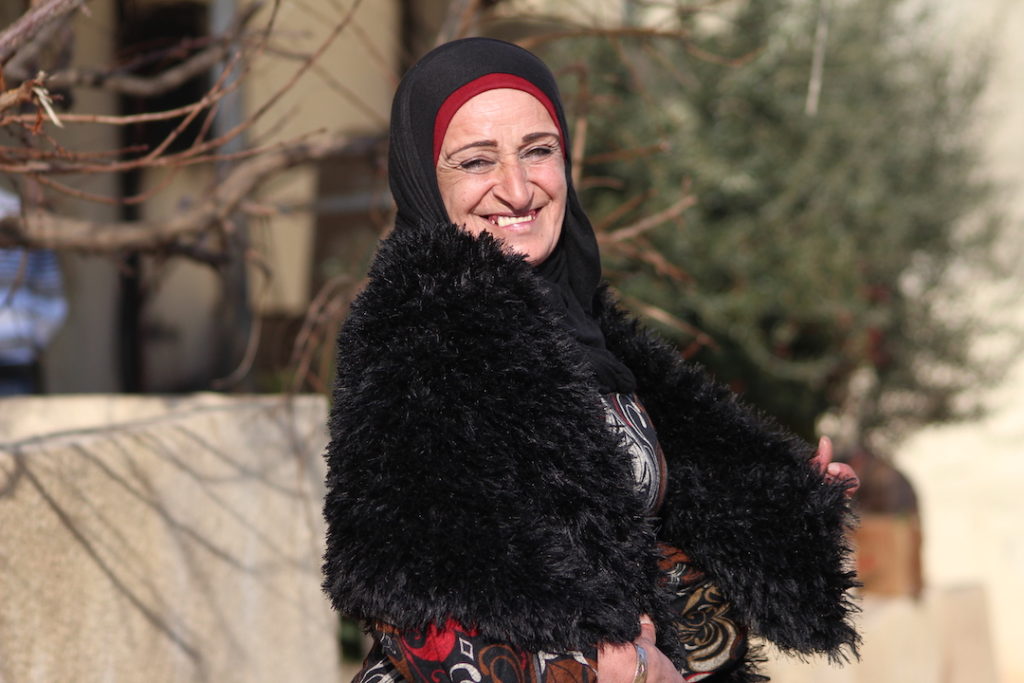
Then last October, I was able to start doing what I love again – learning! My neighbour told me about a programme financed by the European Union called DAWRIC. They provide training for women to help them access the labour market.
I tried to find work, but there isn’t much here in Douris. So, to keep myself busy, after taking care of the house I continued to make clothes and gifts for the family. I’m the type of person who can’t sit around doing nothing. I hate it!
When I heard this, I leapt at the chance! I jumped on the bandwagon. The programme had already started three weeks before, but I quickly caught up.
Every morning I got up really early because I wanted the house to be impeccable before going to training, which took place three times a week from 9 to midday. I took care to finish everything that needed to be done before leaving: the chores, prepare meals, all the essentials so that my father could relax.
What was interesting about the workshops was that they taught us a lot of new skills that I didn’t know, in addition to embroidery and sewing. I learnt how to make new handicrafts, woodwork, how to work with glass to make plates and decorative objects, etc. We were also taught strategies on how to sell our creations more effectively and how to ask for a bank loan.
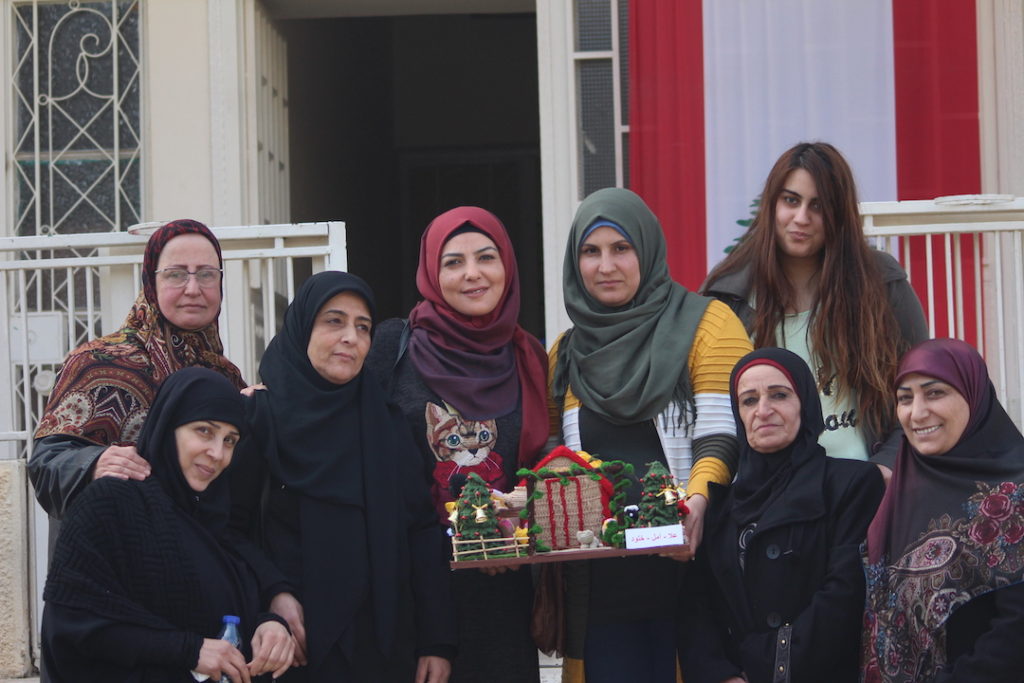
Today I sell most of my work through word of mouth. Here, women talk a lot. While they’re having coffee, they’ll ask where someone got a pretty baby suit from and they will reply that it was from Souhayla and that she does a very good job. I charge less than the markets, because you have to be sharp to sell your crafts. That’s how people get to know you. For the moment I have 4 to 5 clients.
It’s important to me. I need to think about diversifying what I make, my skills and my designs, so I can sell more. I need to learn to be financially independent to support myself if the current financial situation takes a bad turn. My father is 83 years old. I could lose him at any time and it will be me who must take charge of everything and look after my nephew and niece. Thankfully we were able to buy our apartment three years ago, but I will have to take care of everything else.
That said, I have faith. Because I’ve done the European Union training, I feel useful and capable of doing things and I want to pass this on to my niece.
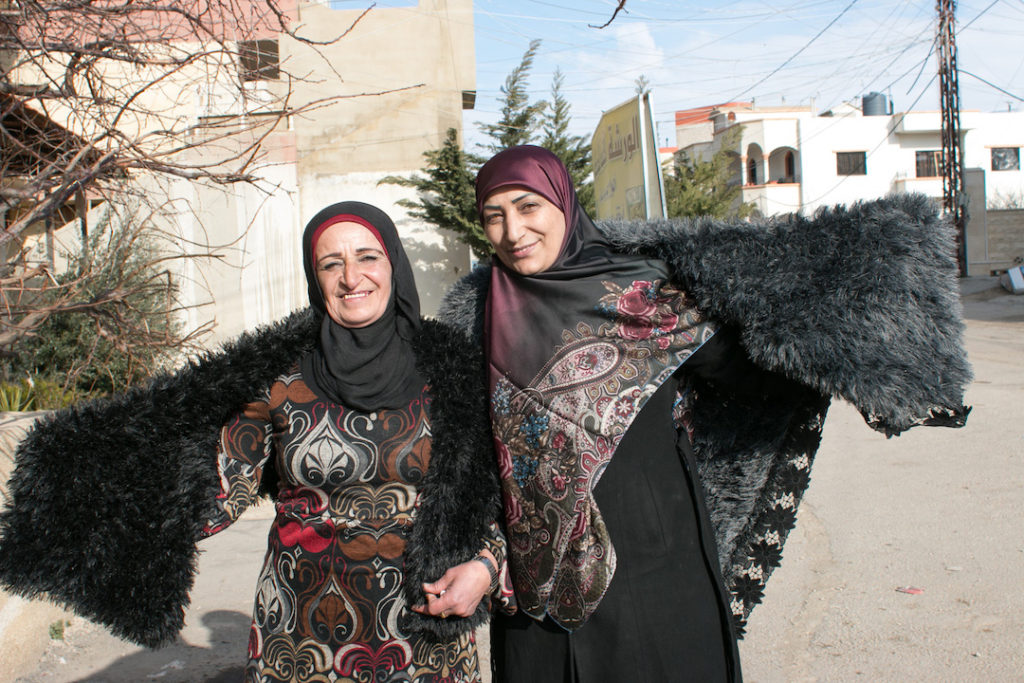
Of course, I would like her to get married and start a family. I want her to be happy, but I would also like her to work so she feels useful, can help her husband and be independent
I am doing all I can to encourage her to study; I don’t even ask her to make her own bed. All I want for her is to study and do the Masters in English Literature she has dreamed of for so long. Everything that I was unable to do and learn, I want her to be able to achieve.”
Souhayla Aamer is 59 years old and is one of 23 women in Douris in the Baalbek region who has benefited from the European Union-funded DAWRIC project (Direct Action for Women: Reform, Inclusion and Confidence) which was implemented by the British Council alongside the Maharat Foundation and the Committee for the Follow-Up on Women Issues – CFUWI).
The aim of DAWRIC is to strengthen the capabilities of women in Lebanon in order to combat poverty and promote gender equality. The project worth almost one million Euros has been implemented throughout Lebanon (in 21 towns) with some twenty NGOs and associations.
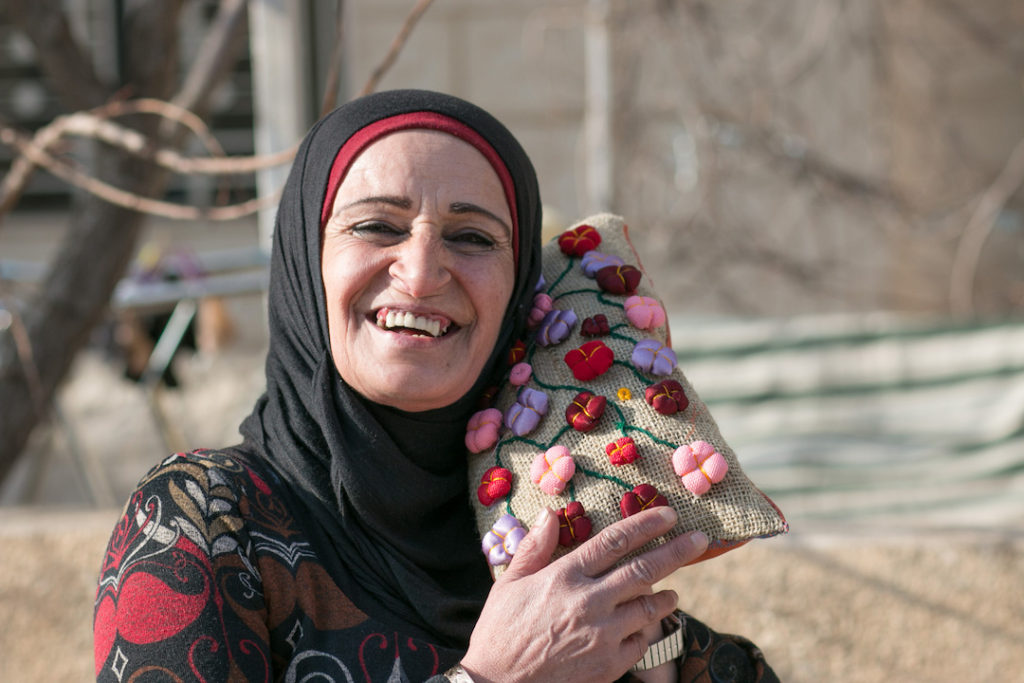
In Douris, DAWRIC has worked with the Oriented Association for Advancement and Development (AOD) and dedicated $10,000 to training these women. Out of the 23 who have benefited from the training, which took place from October to December 2018, 4 say that they have generated an income from selling their handicrafts. The others do it as a hobby. “This is a rural area. Women are often forced to stay at home and even if they are given the chance to work, it is better to focus on activities which can be done at home, explains Chafik Chehadeh, President of the AOD association.
A total of 4000 Lebanese women have benefited from the EU project which began in September 2016 and finishes this month, in March 2019.
